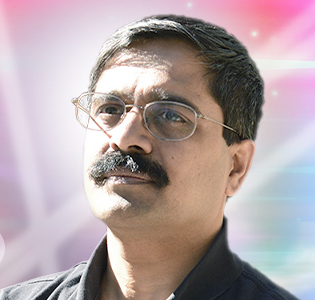Visa's Blueprint: Engineering Reliability for 'Always-On' Systems

In an era where digital transactions are not just commonplace but expected, understanding the complexities of payment systems is more crucial than ever. Companies like Visa are at the forefront of this digital revolution, ensuring that millions of transactions occur seamlessly every day. But what goes into making such a complex system reliable and secure? This article delves into the engineering marvel that is Visa's 'always-on' payment system, a multi-layered approach that combines robust security, innovative engineering, and a consumer-first mindset.
As we adapt to a fast-changing digital landscape, the insights offered by industry leaders like Visa become invaluable. Whether it's the use of artificial intelligence in real-time fraud detection or the architectural designs that prevent any single point of failure, Visa's strategies offer a roadmap for any organization aiming to achieve a similar level of reliability. Read on to discover how Visa continues to set the standard in payment systems.
In today's environment where uninterrupted services are not just a luxury but a necessity, Visa is leading the charge. The global payments giant isn't simply a card company; it's a technological powerhouse orchestrating millions of secure transactions every day, everywhere. Recent developments, such as Visa's exploration of blockchain technology for cross-border payments and its strategic partnerships with fintech companies, underscore its commitment to innovation and expanding its digital payment capabilities.
In a talk at Great International Developer Summit, Bhavna Kumar from Visa offered a deep dive into what it really takes to engineer this kind of ubiquitous reliability. Rather than just being a card issuer, Visa emerges as a tech pioneer that is erasing geographical and financial boundaries. This perspective becomes even more compelling when you consider that, as of the first quarter of 2023, Visa's systems are designed to handle an impressive 571 million transactions per day, up from the previously cited 500 million. This increase is an evidence of Visa's ongoing investments in technology and infrastructure to meet the demands of a growing global customer base.
To bring the need for reliability into focus, Kumar outlined the lifecycle of a transaction, taking us from Brazil to another continent in just a matter of seconds—all to purchase an umbrella. This case isn't just a show of technological capability; it's concrete evidence of the engineering rigor that goes into ensuring every transaction is secure, quick, and failsafe. In today's context, Visa is also exploring the use of blockchain technology and real-time payments to further enhance the speed and security of its transaction lifecycle, thereby meeting the demands of an increasingly digital world.
One key to this incredible reliability is the Site Reliability Engineering (SRE) model, which has become an industry standard for ensuring 24/7 service. Instead of merely reacting to issues as they come up, Visa’s SRE model is about anticipating problems before they occur. This forward-thinking approach relies heavily on machine learning algorithms that can predict, identify, and rectify issues in real-time. As the field of SRE continues to evolve, 2024 is expected to bring exciting advancements, including more sophisticated machine learning algorithms for even more precise predictive maintenance and quicker issue resolution.
And let's not forget about security. Visa’s defenses are fortified by robust encryption protocols and a modular tech stack, and has consistently received high marks for its security measures. Its first line of defense is so strong that it offers an ironclad guarantee for the integrity of every transaction. In keeping with industry trends, Visa has also been investing in advanced security technologies like biometric authentication to further enhance transaction security.
Visa is also pushing the envelope with innovative features to ensure transaction reliability. While 'Standard Processing' serves as a backup when an issuer's system falters, Visa has also been investing in real-time fraud detection and artificial intelligence to assess the risk and make a call on transactions. These advancements add another layer of reliability, ensuring a smooth customer experience and aligning with Visa’s commitment to being 'always-on.
What makes Visa’s approach truly cutting-edge is its architectural design. Known as 'Triple A,' this active-active automated failover system ensures that no single data center becomes a point of failure. If that sounds like a mouthful, consider this: it's facilitated by a state-of-the-art monitoring system that scans multiple layers of the infrastructure to help with immediate fault detection and resolution. In line with industry advancements, architectural designs are increasingly moving towards cloud-based and decentralized systems, and Visa is likely adapting to these trends to maintain its leadership in technological innovation.
But this journey toward ultimate reliability hasn't been without its challenges and opportunities for growth. Visa has not only progressed from older, threshold-based monitoring solutions but has also made significant strides in artificial intelligence and machine learning. In 2022, Visa's real-time payment fraud monitoring solution, Visa Advanced Authorization (VAA), helped prevent an estimated $27 billion in fraud. Furthermore, the company announced a $100 million generative AI ventures initiative in 2023, emphasizing its commitment to ongoing innovation in a rapidly changing tech environment.
Beyond the tech specs, what sets Visa apart is its broader impact on global commerce. This is not just about fast and secure transactions; it’s about enabling easy refunds, ensuring backward compatibility, and ultimately making lives easier for everyone involved in the financial ecosystem. According to a 2023 study by Visa, small businesses are increasingly looking at global expansion as a key to growth. Additionally, Visa is committed to digitally enabling 50 million small and micro businesses worldwide by 2023, further emphasizing its role in advancing digital equity and global commerce.
In summary, Visa's approach to engineering 'always-on' systems is a multi-layered affair, combining robust security, forward-thinking engineering, and a consumer-first mindset. As we all navigate a digital world that is rapidly transforming, Visa’s insights serve as a valuable model for any organization aiming to achieve a similar level of reliability. Their strategies align well with emerging trends in technology and consumer behavior, making them a leader in adapting to the demands of today's interconnected landscape.
Watch the full video of the talk from April 2019, here.
Have questions or comments about this article? Reach out to us here.
Banner Image Credits: Bhavna Kumar at Great International Developer Summit






